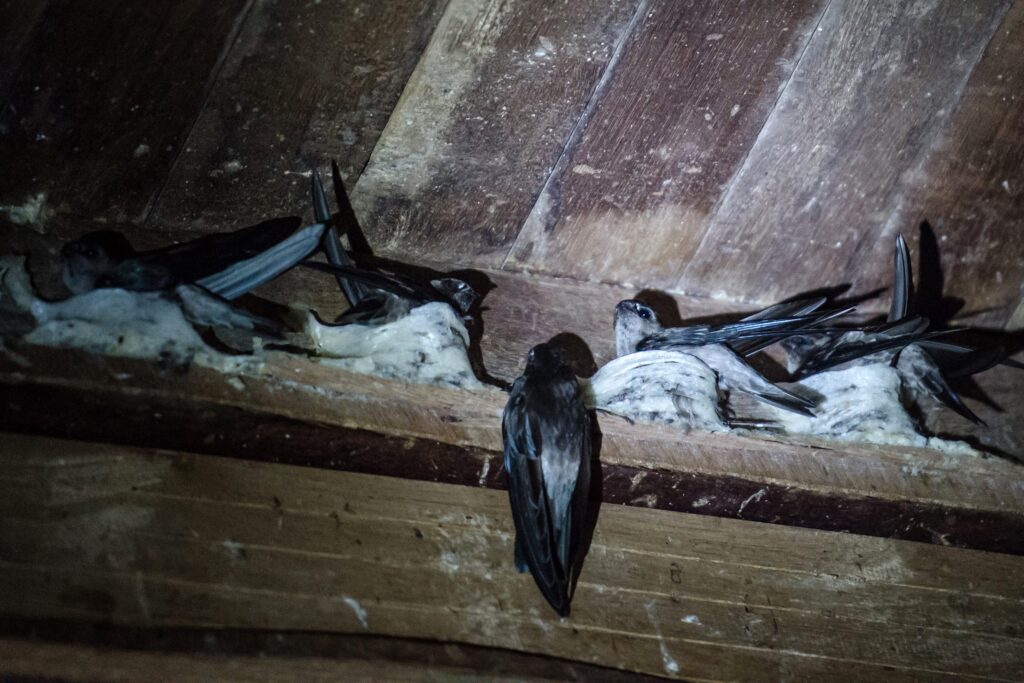- Bird hotels in Indonesia try to attract swiftlets, whose edible nests are a delicacy in China.
- The swiftlet nests, made of dried saliva, are used to make bird's nest soup.
- Farmers compete to attract the swiftlets by ensuring their birdhouses have the right conditions.
People in Indonesia are building fancy hotels aimed at attracting a very specific type of clientele: swiftlets, small birds whose edible nests are considered a delicacy in Chinese cuisine.
The nests, made of dried swiftlet saliva, sell for high prices and are used to make bird's nest soup, which involves dissolving the nest in water. The resulting soup has a gelatin-like texture, is believed to bring numerous health benefits, and has been consumed in China for at least hundreds of years.
The nests themselves can sell for over a thousand dollars per pound, earning the nickname "the caviar of the East," while bird's nest soup can go for over $100.

In Indonesia, which claims to be the largest exporter of swiflet nests in the world, more and more people have built structures to attract the swiftlets and harvest their nests, according to The New York Times. The number of birdhouses in the Sambas Regency region alone has increased by five times over the past decade.
Because of the increased competition, birdhouse owners are going to great lengths to compete against each other and draw in the swiftlets, which are actually pretty picky about where they choose to build their nests.
Typically swiftlets would nest in caves throughout Southeast Asia, where harvesting the nests off cave faces and the edges of cliffs can be risky business.
Zulkibli, a government employee in Indonesia who built a 50-feet-tall birdhouse for swiftlets, told the Times in order to attract the birds you need to treat them like "rich humans" and make them comfortable.

"Comfort, by regulating the temperature," Zulkibli said. "Safety, by keeping pests and predators away. The swiftlet house must be really clean. They don't even like spiders."
Some people remodel the top floors of homes to make them into birdhouses for swiftlets. Some play sounds that mimc the echolocation sound of the swiftlet in order to attract them.
However, Zulkibli said that the increase in birdhouses and the climate crisis have made the birds rare, with some farmers quitting altogether.
While the swiftlet housing boom has made bird's nest soup more popular, the future of the wild swiftlet population is uncertain, according to Audubon.

